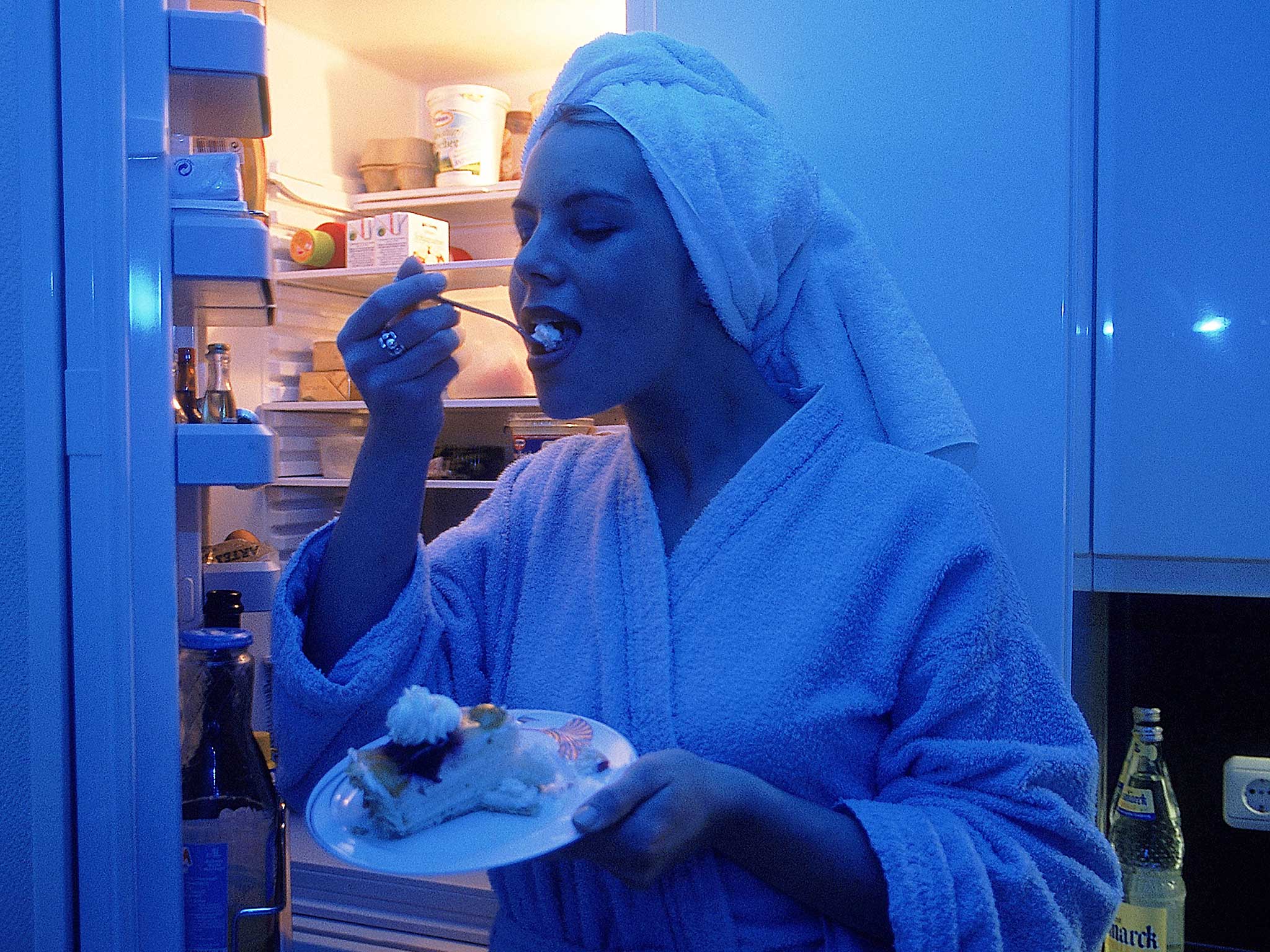Late night snacking may contribute to cancer, scientists claim
New research indicates that prolonged periods of fasting may have health benefits

Your support helps us to tell the story
From reproductive rights to climate change to Big Tech, The Independent is on the ground when the story is developing. Whether it's investigating the financials of Elon Musk's pro-Trump PAC or producing our latest documentary, 'The A Word', which shines a light on the American women fighting for reproductive rights, we know how important it is to parse out the facts from the messaging.
At such a critical moment in US history, we need reporters on the ground. Your donation allows us to keep sending journalists to speak to both sides of the story.
The Independent is trusted by Americans across the entire political spectrum. And unlike many other quality news outlets, we choose not to lock Americans out of our reporting and analysis with paywalls. We believe quality journalism should be available to everyone, paid for by those who can afford it.
Your support makes all the difference.Late night snacking may increase the risk of getting breast cancer, scientists claim.
University of California researchers found that an increase in overnight fasting reduces the glucose levels of some women, in part helping to reduce the risk of breast cancer.
Scientists believe that reducing glucose and blood sugar levels could help reduce women’s chances of developing the disease and the latest research indicates that by eating less late at night women have better control over these levels.
“Increasing the duration of overnight fasting could be a novel strategy to reduce the risk of developing breast cancer,’ co-author Catherine Marinac.
The San Diego School of Medicine researcher continued: “This is a simple dietary change that we believe most women can understand and adopt. It may have a big impact on public health without requiring complicated counting of calories or nutrients.”
The report, published by the journal Cancer Epidemiology, Biomarkers & Prevention and presented at the American Association for Cancer Research’s annual meeting in Philadelphia yesterday, studied data from just over 2,000 women.
Scientists are paying increasing attention to glucose as it is believed to provide the fuel for rapidly dividing cancer cells.
However, a spokesperson for Cancer Research cautioned the results.
The national charity’s health information officer Tom Stansfield warned against drawing too many conclusions from the study.
“This study doesn’t add to what we know about breast cancer risk. It didn’t actually look at cases of breast cancer, instead it studied eating patterns of American women and how these affected their blood sugar levels," he told The Independent.
He continued: "And most of the results could have been down to chance. Decades of research have shown that you can stack the odds against breast cancer in your favour by keeping a healthy weight, drinking less alcohol and being physically active.”
US researchers want to trial a larger examination of night-time eating habits in the hope of drawing more conclusive proofs.
Join our commenting forum
Join thought-provoking conversations, follow other Independent readers and see their replies
Comments